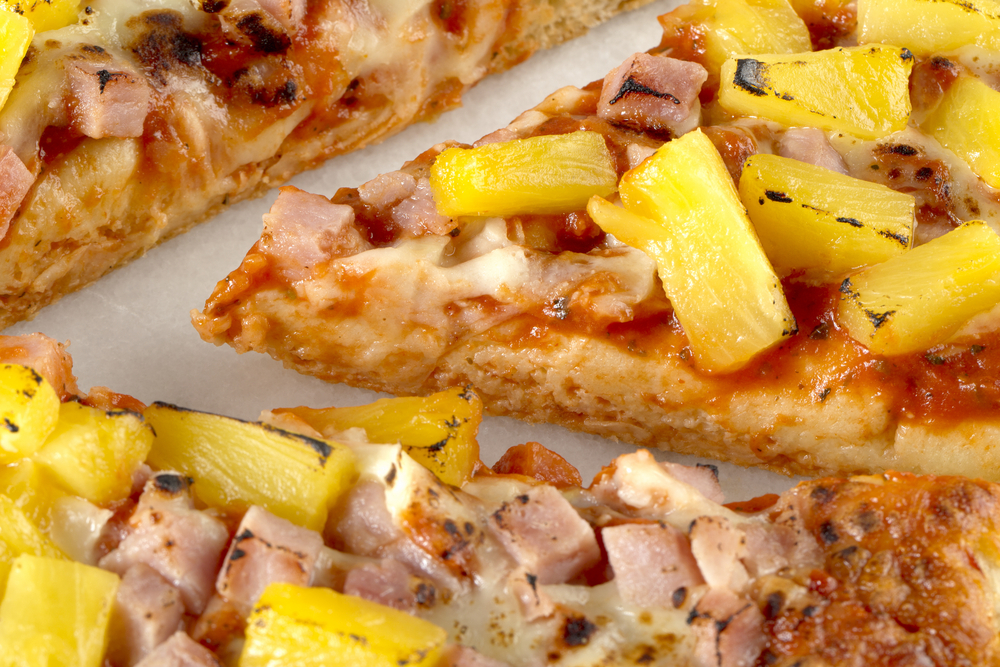DHS Creates Pineapple Pizza Site to Show How Russians Divide Americans
This is how they troll us

NEW YORK—Pineapple on pizza? Delicious or disgusting? What's your take—and are you willing to fight about it on social media?
Believe it or not, such trivial debates are exactly the kind of things that Russian agents use to stir up trouble among Americans, Department of Homeland Security CISA Christopher C. Krebs said at the ICCS at Fordham University here today (July 25).
To that effect, Krebs said, the DHS has created a new website, war-on-pineapple.com, to show Americans how Russian social-media efforts work to divide us—and how to recognize when we're being trolled.
"We're trying to raise critical thinking among the American people about how they're being manipulated by Russian actors," Krebs said.
MORE: America's Election Security: How Vulnerable Are We Now?
To be honest, the premise seems kind of dumb. People are not going to organize protests in favor of Hawaiian pizza, or opposing protests against it. But, as Krebs pointed out, that's exactly what the Russians did do during the 2016 election cycle: "They organize rallies, and they organize counterprotests."
It is true that the pineapple-on-pizza debate has been raging for a while. KnowYourMeme says it goes back to 2009, and culinary experts such as Dwayne "The Rock" Johnson (for) and Taylor Swift (against) have offered their opinions on Instagram and (possibly) Tumblr, respectively.
Sign up to get the BEST of Tom's Guide direct to your inbox.
Get instant access to breaking news, the hottest reviews, great deals and helpful tips.
"When Taylor Swift gets involved, then it's mainstream," Krebs said. "But this is another element of a Russian toolkit. Undermine the public consciousness of the American people. Pick a divisive issue. Use social media—Twitter, Facebook, and other platforms—to drive the conversation to stir up angst."
But seriously, folks
Krebs admitted that he doesn't think the pineapple pizza debate is actually being exploited by Russian trolls. In that way, it's a harmless topic for DHS to use to make its point.
But he said that as we approach the 2020 election cycle, we have to be aware that Russia—and China as well, among other countries—are going to try to undermine American democracy once again.
Krebs cited the British effort to rally the nation during the dark days of World War II, after France had fallen and Britain stood alone against the German aerial bombardment.
The British authorities beefed up the nationwide infrastructure and sent the RAF up into the skies, but they also hardened the resilience of the British people—those "Keep Calm and Carry On" signs you see everywhere now date from that time.
How Russians manipulate American public opinion
War on Pineapple, which Krebs told Tom's Guide was just the first step in what will be a larger campaign to raise awareness of Russian interference, outlines five steps the Russians use to turn Americans on one another.
First, the Russians identify and target divisive issues. Then they set up social-media accounts, often following each other. The third step is to troll Americans by making outrageous and divisive comments online.
If things get heated enough, then the debate makes the mainstream media, achieving the fourth step. At that point, things have reached the point where the fifth step is possible -- to organize real-world protests, rallies and counterprotests. (There's a handy PDF reiterating the website's points here.)
This all may sound unbelievable, but the Russians took exactly these steps with some Black Lives Matter groups in 2016, successfully setting up both rallies in favor of the cause and counterprotests in support of police. It's hard to doubt that there's Russian influence now in the outlandish QAnon conspiracy theories, for example.
We asked Krebs after his speech whether the World War II analogy was apt. The British people then were united against a common enemy, but today half the American political establishment doesn't even acknowledge that the Russians tried to influence the 2016 election, and both the social-media and mainstream-media industries have a profit motive in keeping people outraged and engaged.
Krebs replied that he and his department had to try, and, again, that War on Pineapple is just the beginning of DHS's efforts to educate Americans about Russian (and Chinese, and Iranian) influence peddling.
"This is about Russia trying to hack our brains, hack our minds," he said. "It's not one person, it's not the federal government—it's all of us."
Paul Wagenseil is a senior editor at Tom's Guide focused on security and privacy. He has also been a dishwasher, fry cook, long-haul driver, code monkey and video editor. He's been rooting around in the information-security space for more than 15 years at FoxNews.com, SecurityNewsDaily, TechNewsDaily and Tom's Guide, has presented talks at the ShmooCon, DerbyCon and BSides Las Vegas hacker conferences, shown up in random TV news spots and even moderated a panel discussion at the CEDIA home-technology conference. You can follow his rants on Twitter at @snd_wagenseil.

